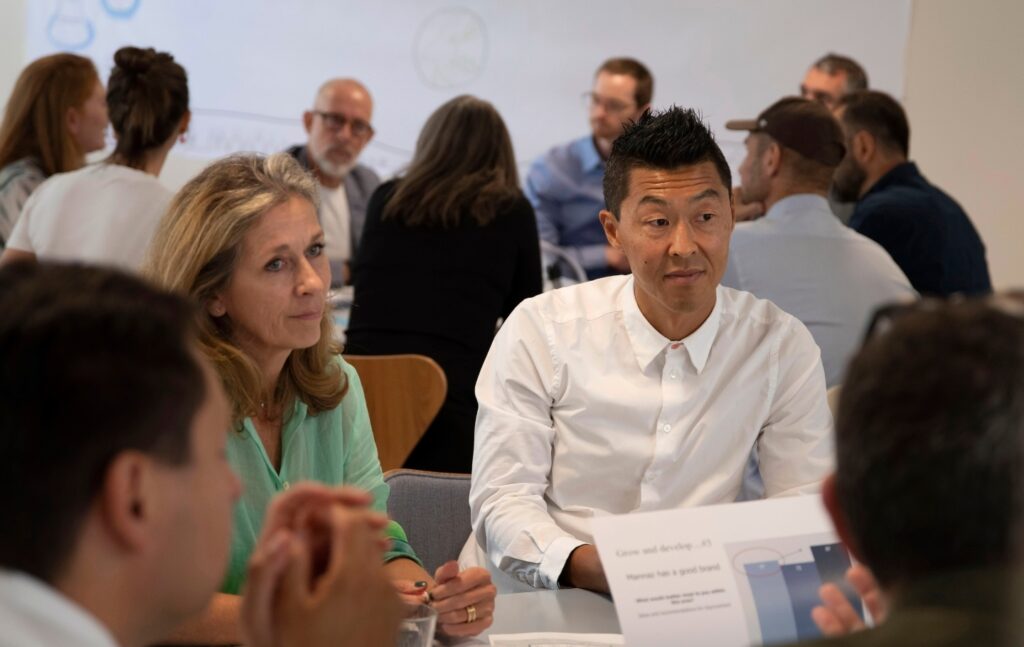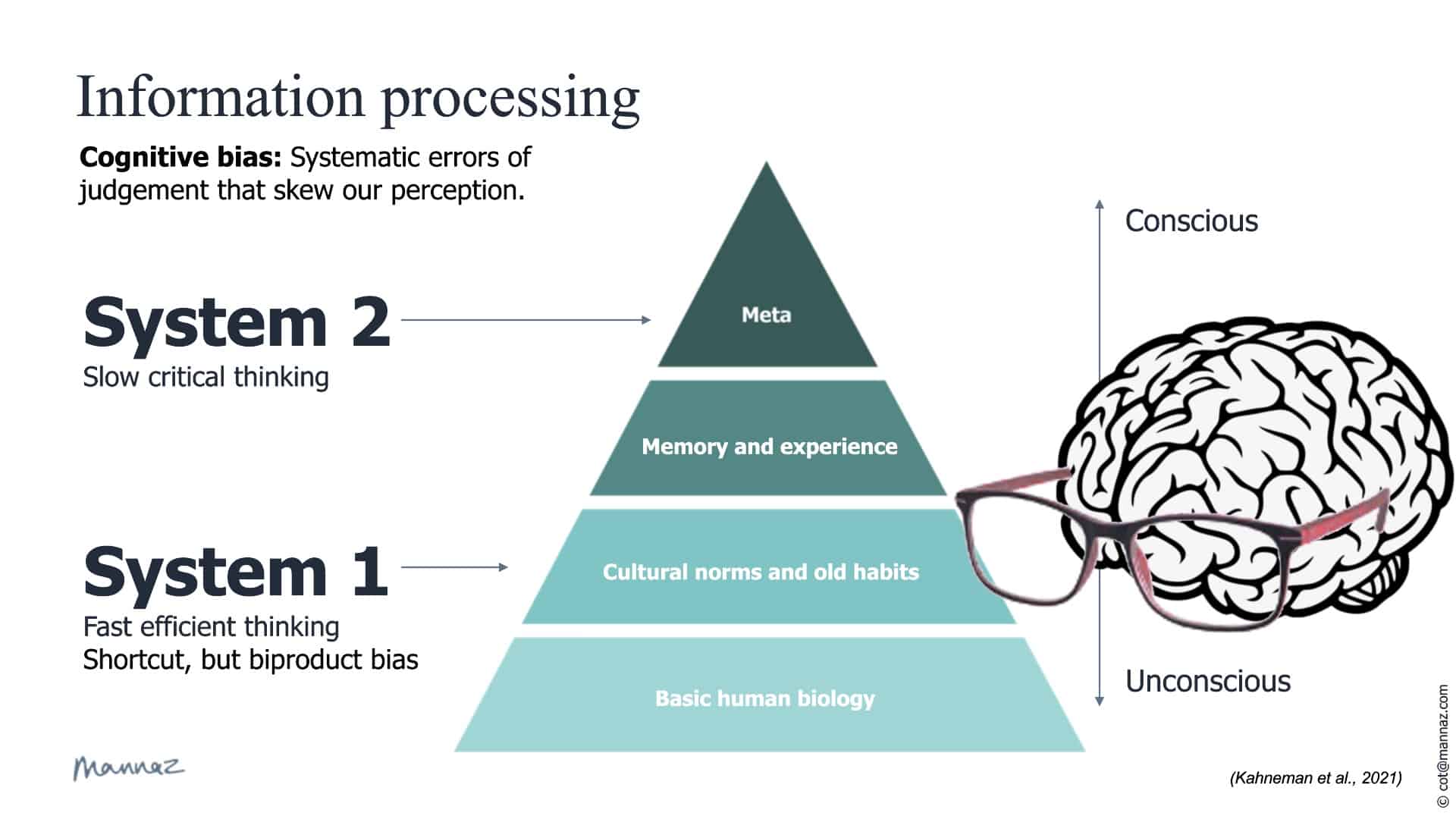
Culture change with respect to diversity, equality and inclusion is a complex challenge. The solution is a systemic, cultural and individual approach. Read more and get inspired by expert knowledge and experiences shared at Mannaz’ recent customer event, which was attended by more than 100 participants focused on management and leadership in the future.
Complex challenges rarely come with simple solutions, and this is certainly the case when it comes to diversity, equality and inclusion. On Mannaz Days 2022, 3 experts in these fields gave their input to solutions from 3 different angles: systemic, cultural and individual.
Marianne Egelund Siig, CEO at Mannaz, has worked tirelessly on EDI (Equality, Diversity and Inclusion) for years, and she recently published the Danish book ‘Gid vi gad’ (‘I wish we would’) about these topics. Very few people have her level of knowledge within this field.
‘When you start working with EDI, you face a very extensive and complex set of problems. There is no quick fix. There is no silver bullet. Instead, you will have to take on the challenge with systemic, cultural and individual approaches, and this takes time,’ says Marianne.
As a consulting firm, Mannaz works with many organisations that desire cultural change with respect to EDI.
‘We always recommend that people work with several approaches simultaneously. Diversity is the “mix” itself – in other words, the representation of diversity in terms of age, gender, ethnicity and other characteristics. Inclusion is about benefiting as much as possible from the “mix” in order to allow everyone to thrive and reach their potential,’ she explains.
Marianne thinks that we have, for years, been too focused on fitting people and colleagues into specific boxes based on stereotyped assessments and boxes that keep getting smaller and smaller. She thinks that we are ethically obliged to break these boxes.
‘Who says that talent is always below 30 years old? Who says that a manager can’t be 25 years old? We have a lot of inflexible notions. Right now, IKEA is leading the way when it comes to talent development by looking at what you can do and what you want to do, rather than narrowly at just age and education,’ says Marianne.
She emphasizes that companies should not only consider EDI because it is the right ethical thing to do, but also because it makes sense from a financial viewpoint.
‘EDI is a rock-solid business case. Better gender balance and diversity in management and teams will lead to a much better bottom line, for instance. Several big studies document this,’ she says.
She is quick to re-emphasize that you need to work with different EDI approaches simultaneously.
‘At Google, they examined which factors created the most efficient and result-oriented teams. Psychological security turned out to be the crucial factor. In other words, having diversity and talent mass is not enough; you also need inclusion, so everyone feels safe enough to unfold their talents.’
On the systemic level, companies must also identify factors blocking EDI, as well as what facilitates EDI, if they desire cultural change. They must also ensure that all levels of the corporate hierarchy, both vertical and horizontal, are involved, according to Marianne.
From the systemic perspective, the focus at Mannaz Days moved on to the individual level, where Christina Lundsgaard Ottsen, Senior Consultant at Mannaz and author of the Danish book ‘Biasbevidst ledelse’ (‘Bias-conscious Leadership’), picked up the baton.
‘You can’t handle EDI only on the systemic level, as a lot of the problems are based on individuals. Bias is created by psychological mechanisms,’ says Christina.
In order to understand these mechanisms, we have to look at the way our brains process information.

‘Cognitive processes can be split up into two general parts. In System 2, we find the meta level. This is the part of our brains that we are proud of, as it allows us to think consciously, which separates us from animals. Further down, we see for example the cultural norms on which we base our thinking – System 1, which is more influenced by subconscious thoughts that are much faster and less demanding than meta thinking. This is where we are prejudiced and affected by bias,’ explains Christina.
She adds: ‘No matter how much you try you can’t avoid these thoughts. If you have a brain, you will also have them. That also goes for me, even though I have been studying this field for years.’
Her message is that even though we all have these prejudiced automatic thoughts, we need to challenge them and change them together.
‘We need help identifying our bias. You can use behavioural design to do this, for instance,’ she adds.
Humans are flock animals. The flock provides protection and strength, but it also weakens us in certain ways.
‘Humans are social, and we imitate each other. But group thinking also leads to conformity. We start to accommodate the opinions of the group even when we know that they are wrong. When everyone thinks the same way, innovation withers. This is a problem, because organizations that don’t innovate will eventually die,’ says Christina.
She therefore encourages all of us to assume the role of the devil’s advocate.
‘We need to have the courage to challenge the group by asking: is this the best solution? A range of techniques can also be used to ensure that less uniform input is brought to the table during meetings. One way to block bias is to have everyone submit their ideas before a meeting. Otherwise, we often end up saying the same things as the chairperson without realising it,’ she concludes.
She also points to the common tendency to prefer ideas from people we like rather than looking objectively at the idea’s quality and potential.
Despite the desire to become more inclusive on an individual and organisational level, there are many barriers, as pointed out by both Marianne and Christina, preventing companies from achieving integrity in this area, begins Rasmus Bay, Head of Talent at Mannaz.
‘You need to locate the balancing points in your behaviour that make you truly inclusive. For instance, you need to consider which kind of person you build a relationship with, while you make sure to keep your own values and humanity intact in the relationship,’ he explains.
Rasmus also thinks that the last 15 years’ general management mantra is one of the reasons why some managers have difficulties being more inclusive.
‘Managers have been encouraged to leverage their own strengths for many years. But that style is no longer viable. Using a metaphor, you should not just strike harder with your hammer. You need to find other tools. When you focus on your strengths, you also reinforce them and turn them into values. This can make it hard for the manager to appreciate the value of different input,’ he adds.
Rasmus thinks that this mindset should be changed in order to achieve a successful process for cultural EDI change.
‘Our values are embedded within us, but they can be modified. Managers can go to work with the purpose of building up others rather than relying on their own strengths. This way, the manager can also ensure that more people feel included,’ he says.
Finally, Rasmus thinks that authenticity should never overshadow professionalism.
‘Powerful people should never behave like they want to in the name of authenticity. They need to serve the organisation’s best interests, not their own needs, and they must foster the psychological security that is essential in enabling all talents and paving the way for EDI.’
Here at Mannaz, we have a lot of experience of helping companies focus more on achieving better gender balance, greater diversity and increased inclusion.
We have a team of experienced insightful advisors available who can guide and support you through a process that will lead to a stronger culture that creates robust companies, happy employees and better bottom lines.
Find out what we can offer or contact our experts below if you want to learn more.
Marianne Egelund Siig
CEO of Mannaz and expert in equality, diversity and inclusion

Marianne is a recognised strategical manager dedicated to creating value and purpose for people, companies and society as a whole. Marianne is a thought leader within equality, diversity and inclusion. For more than 20 years, she has been leading successful business transformations focusing on management, teams, talent and organisational strategies and development, including diversity and inclusion. Marianne is also the author of the book Gid vi gad – Om viljen og vejen til ligestilling, diversitet og inklusion (I wish we would – about the will and the path to equality, diversity and inclusion).
Contact Marianne at mes@mannaz.com or +45 4517 6000
Christina Lundsgaard Ottsen
Cognitive psychologist with a PhD in cross-cultural diversity.

As a researcher, Christina worked with diversity in Scandinavia and the Middle East, and she went on to become an expert in inclusive leadership focusing on the psychological mechanisms behind cognitive bias. She facilitates decision-making processes and sustainable development in organisations through increased cultural awareness about teamwork. Since 2008, she has worked strategically with diversity and inclusive leadership to increase the quality of decision-making processes and strengthen sustainable development. Christina is the author of the book “Biasbevidst ledelse – Sæt diversitet i spil og træf bedre beslutninger” (Bias-conscious leadership – Bring diversity into play, and make better decisions).
Contact Christina at cot@mannaz.com or +45 2682 8885
Rasmus Bay
Head of Talent in Mannaz

Rasmus is the Head of Talent in Mannaz. For 20 years, he has worked as a management advisor, facilitator and educator in management. Likewise, Rasmus has also assumed management roles in various contexts. He is preoccupied with, and has many years of experience of, managers’ development of their personal leadership skills from C-level to first-line managers. He has a particular focus on managers’ ability to find balance in their leadership, allowing them to match all business-related and organisational situations.
Contact Rasmus at rba@mannaz.com or +45 4022 2922.